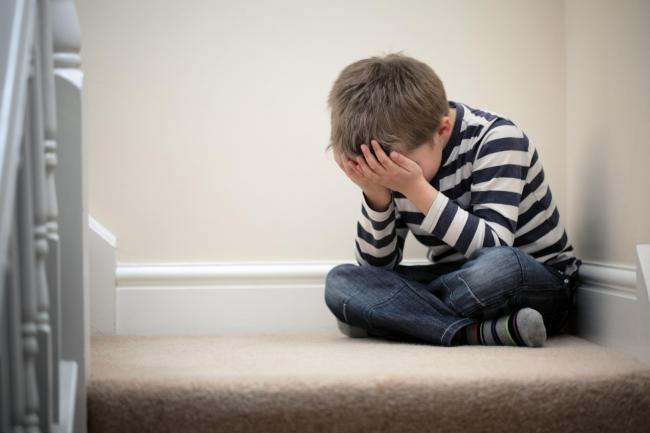
Have you ever wanted something so badly but you felt like you couldn’t do anything about it? How would you describe your state during those times?
Chances are that you experienced one or more of these emotions: frustration, neediness, helplessness, powerlessness, irritation, desperation, anxiousness, nervousness, anxiety, and possibly depression.
Before you beat yourself up for feeling this way, you should know that your feelings are perfectly normal. Most people experience inner turbulence whenever they feel unable to control an outcome that’s important to them. That’s because we dislike the unknown. We perceive the unknown as a threat to our survival.
We tend to associate control with security and even power.
Currently, things are in flux, but our response to uncertainty hasn’t changed. We still have a need to try to control our environment. The possibility of losing a job or a business deal or being rejected by someone we fancy is not going to kill us, but we may feel as if it could.
Accepting what we don’t like maybe one of the most difficult aspects of life. To solve challenges, we normally try to take positive action and change what we can, but inevitably there will be people, situations, and events we don’t like and that we aren’t able to change.
Do you find yourself trying to change things you have no control over?
If so, you probably find it difficult to be satisfied and content with life. If we can’t change a situation or an outcome our best option is to learn how to accept it and deal with it.
Acceptance has many benefits:
- A more positive attitude
- Less worry and stress
- Less energy drained from trying to figure things out
- Ability to embrace change
- Greater appreciation and gratitude
- A more compassionate perspective
Acceptance is not the same as resignation or passivity. We can continue to push forward despite accepting that there are things beyond our control. Here are a few tips to living with greater acceptance so you can have more joy and peace of mind.


1. Let Go of the Past
We all have baggage that we carry from our past, and this baggage gets heavier the longer we hold onto it. Many people have a hard time letting go of past. We carry a mental reminder of our mistakes and losses with us everywhere we go, not realizing how much they steal from our present joy and contentment.
We can’t change the past. What happened in your past happened, so our only hope is to learn how to accept our past and move forward.
2. Learn Coping Skills
At one point or another life will present us with an unexpected turn of events. It may be a difficult loss or a failure of epic proportions that we aren’t prepared to deal with. Sometimes these events are beyond our current ability to cope. So, part of the acceptance process is learning new ways to cope with a crisis.
Keep your emotions in check so you can make a more conscious decision about how to deal with a difficult situation.
3. Make It Meaningful
Sometimes the “worst” thing that happens to us ends up being the most fundamental part of our personal growth. It is easier to accept something when we explore the opportunities and possibilities that come out of it. What can you learn from your difficulty? How has your difficulty made you a stronger person?
4. Expect Less
We live in a world that tells us to want more, be more, and do more. This isn’t always a negative message, but it often gets in the way of our life satisfaction. When something doesn’t meet our expectations, we are disappointed and angry. Life can appear purposeless, unfair, and ruthless if our expectations are unrealistic.
So, instead of expecting something to happen, or expecting a person or event to act a certain way, try to focus on accepting and creating. Focus on what you want to create instead of what you expect to happen. Creation is motivating, expectation is demanding.
5. Set New Goals
When we run into failure or setbacks it can feel like we are stuck with nowhere to turn. Life will take unexpected turns and when this happens our trajectory might have to change as well. There is a point where it is in our best interest to move on and let go of what we want. If something doesn’t work the way we planned, don’t get caught up in the outcome.
Instead of doing the same thing and expecting different results, accept things aren’t working the way you planned and do something different.
You may not be able change what you’re going through right now, but this doesn’t mean you can’t live a full and meaningful life. You can adapt and adjust to your present circumstances.
Stop avoiding difficult issues and only focusing on what you can’t change. Focus on what you can do about the situation, and if you can’t change something it’s time to accept this reality.
Ask yourself, “What do I need to accept so that I can be happier and more fulfilled?”
6. Embracing a Spiritual Outlook
Adopting a spiritual outlook provides a psychological cushion to cope with our perceived lack of control. It comforts us with the notion that there is a divine order behind everything that occurs in life and that there’s a reason why things happen the way that they do. It’s reassuring to know that there’s a benevolent force that’s got our back and supports our personal evolution.


7. Stop Worrying Unnecessarily
Nothing good has ever come from worrying. It induces anxiety and is a major energy drainer. Whenever you worry, you operate from the frequency of fear, which will immobilize you. If we’re not careful, we can go down a tailspin of “what if?” loops and scary visions of all the possible things that could go wrong.
The only way we can get out of this rabbit hole is by letting go of our fears and worries and replacing them with optimism, faith in the future, and probably learning better coping skills with a licensed therapist.
8. Focus on What You Can Control
Anxiety caused by the excessive need to control circumstances will wear down your mental energy and focus. You can regain power by surrendering your control over a situation. You’ll realize that although you have no way of controlling the events or people involved in a certain situation, you do have control over how you feel and how you react.
Based on what you know, you can create a plan and proactively follow through with it. You’ll feel more empowered knowing that you’ve done the best you could and you’re open to all possible outcomes.
Summary
Letting go of control is, essentially, an act of faith whether spiritual or otherwise. Faith can get us through foggy times of uncertainty and help us navigate through the dark valleys where we can’t see where we’re heading. Faith will illuminate our path and lead us down to our destiny if we allow it to.
We are always here to help the people residing in McKinney, Plano, Dallas, Denton, Allen, Garland, and the surrounding communities found throughout Texas. If you are suffering from spiritual challenges, constant worry, anxiety, depression, or need assistance with coping skills, or you know someone who may be, please contact our certified therapist team at Foundations Counseling today.




















Recent Comments